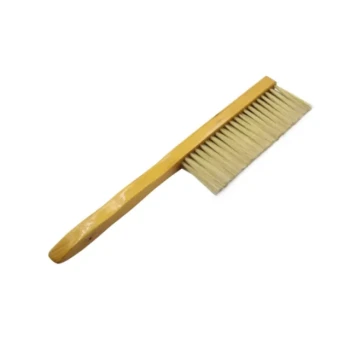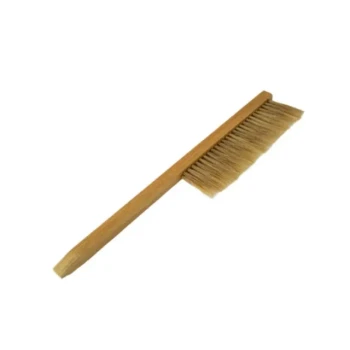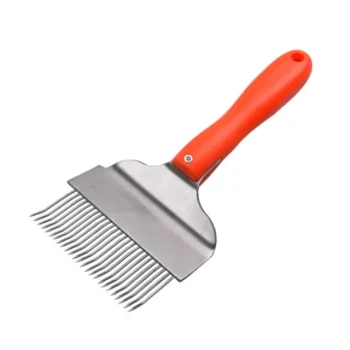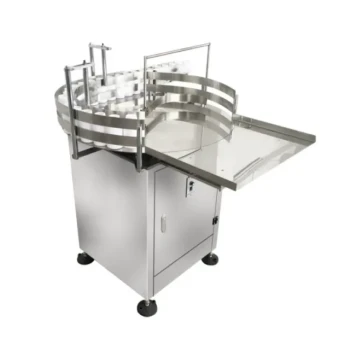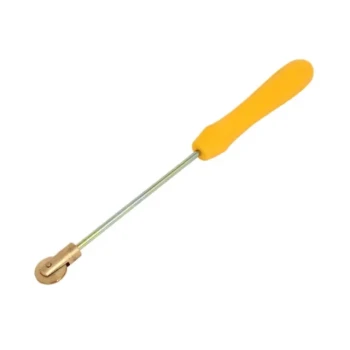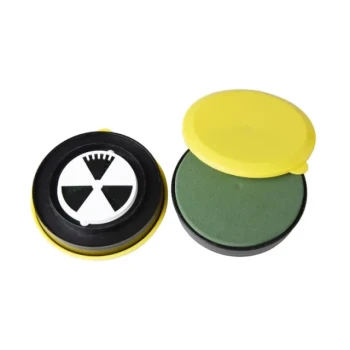The primary reasons beekeepers collect pollen are twofold: for economic gain by selling it as a health supplement for human consumption, and for apiary management by feeding it back to their own colonies to ensure their health and survival during periods of natural pollen scarcity.
Pollen collection is a strategic beekeeping practice that transforms a hive's natural surplus into either a direct revenue stream or a critical nutritional reserve, fundamentally enhancing the resilience and productivity of an apiary.

The Dual Value of Bee Pollen
Understanding why a beekeeper would add another task to their workflow begins with recognizing that collected pollen has two distinct, valuable applications. It can be a product for sale or a tool for colony management.
A Lucrative "Superfood" for Humans
Bee pollen is widely marketed to humans as a "superfood" or performance booster due to its rich nutritional profile.
This demand creates a direct economic incentive for beekeepers to harvest, dry, and sell pollen, diversifying their income beyond just honey sales.
A Nutritional Reserve for the Colony
Pollen is the bee's primary source of protein, fats, and vitamins. It is essential for raising brood (young bees) and maintaining the health of the adult population.
Beekeepers collect pollen during times of abundance to store it. This stored pollen can then be fed back to the bees during a "dearth" or over winter when natural forage is unavailable.
Why Supplemental Feeding is Necessary
The practice of feeding pollen back to bees has become increasingly critical due to changes in the environment that can leave colonies vulnerable to malnutrition.
The Challenge of Modern Landscapes
Many agricultural and urban landscapes lack the diverse, season-long floral resources that bees require to thrive.
This lack of natural forage means colonies can struggle to collect enough pollen on their own, making beekeeper intervention necessary to prevent decline.
Fueling Growth and Brood Rearing
A strong, consistent supply of pollen is non-negotiable for colony growth. Without it, the queen may slow or stop laying eggs, and the larvae cannot be properly nourished.
By providing a pollen supplement, beekeepers ensure the colony can continue to raise new generations of bees, even when outside conditions are poor.
The Mechanics and Trade-offs of Collection
Collecting pollen requires specific equipment and careful management to avoid harming the colony you are trying to help.
The Principle of the Pollen Trap
Pollen traps are devices fitted to the hive entrance. They feature a screen with small holes that are just large enough for a bee to squeeze through.
As the foraging bee passes through the screen, some of the pollen pellets packed on her hind legs are dislodged and fall into a collection tray below.
The Risk of Over-Harvesting
A critical feature of these traps is that they are designed to partially restrict pollen intake, not eliminate it. A significant amount of pollen still makes it into the hive for the bees' immediate needs.
However, the beekeeper must monitor the colony's health and the trap's activity. Leaving a trap on for too long or during a weak pollen flow can deprive the colony of essential resources and weaken it.
Common Trap Designs
Several types of traps exist, but they all operate on the same principle. Common styles include front porch traps that fit over the entrance and bottom-board-mounted traps like the Sundance model.
Making the Right Choice for Your Apiary
Whether you should collect pollen depends entirely on your goals and local environment.
- If your primary focus is revenue generation: Harvest pollen during peak floral blooms to sell as a high-value health product, ensuring you monitor colony strength closely.
- If your primary focus is colony self-sufficiency: Collect surplus pollen in late spring and summer to create a nutritional reserve for feeding back to your hives before winter.
- If you are a hobbyist in a pollen-rich area: Collection may be an unnecessary stress on the colony; it is often better to ensure the bees can capitalize on the abundant natural forage themselves.
Ultimately, strategic pollen collection allows a beekeeper to actively manage a colony's nutritional resources for greater resilience and productivity.
Summary Table:
| Primary Reason | Key Benefit | Key Consideration |
|---|---|---|
| Economic Gain | Diversifies income by selling pollen as a health supplement. | Must monitor colony strength to avoid over-harvesting. |
| Apiary Management | Ensures colony health & survival during pollen dearth or winter. | Requires strategic collection and storage during abundance. |
Ready to enhance your apiary's resilience and profitability?
As a trusted supplier for commercial apiaries and beekeeping equipment distributors, HONESTBEE provides the high-quality pollen traps and supplies you need to implement this strategic practice effectively. Our wholesale-focused operations ensure you get the reliable equipment required for sustainable pollen collection, supporting both your revenue streams and your colonies' health.
Contact HONESTBEE today to discuss your specific needs and strengthen your beekeeping operation.
Visual Guide

Related Products
- Wooden Bee Brush with Triple Row Artificial Fiber for Beekeeping
- Classic Wooden Bee Brush with Double-Row Boar Bristles
- Beehive Handle and Frame Rest Cutting Machine: Your Specialized Hive Machine
- Professional Galvanized Hive Strap with Secure Locking Buckle for Beekeeping
- Professional Extra-Wide Uncapping Fork with Bent Tines for Beekeeping
People Also Ask
- What are the market standards for pollen? Human Consumption vs. Bee Feed Guidelines
- What role does industrial deep-freezing equipment play in the long-term preservation of fresh pollen supplemental feed?
- What methods are available for cleaning bee pollen? Optimize Your Harvest for Maximum Purity
- What role do exogenous pollen pots play in inducing stingless bee honey production? Maximize Yields & Growth
- What is the function of traditional pollen traps in the collection process of bee pollen samples? A Guide to API Science
- What is the function of a pollen trap in the detection of eRNA? Enhance Your Non-Invasive Hive Monitoring Efficiency
- What are the essential maintenance practices for a bee pollen trap? Tips for Longevity and Purity
- What are the potential negative impacts of excessive pollen collection? Ensure Colony Health and Long-term Productivity
